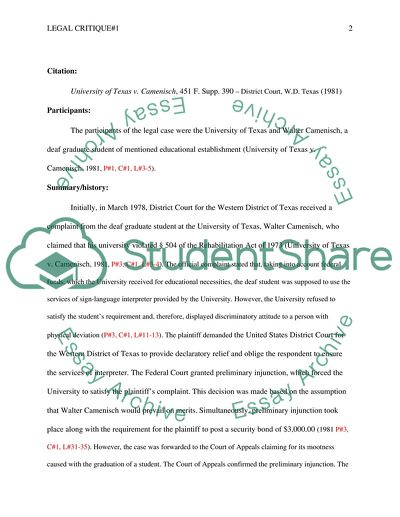Legal Critique#1 Assignment Example | Topics and Well Written Essays - 500 words. Retrieved from https://studentshare.org/education/1678419-legal-critique1
Legal Critique#1 Assignment Example | Topics and Well Written Essays - 500 Words. https://studentshare.org/education/1678419-legal-critique1.


